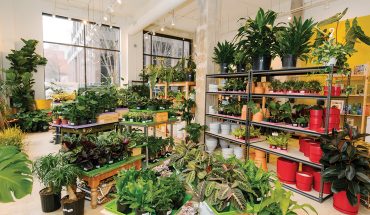Flower Power
A flower farmers’ market thrives in Durham
by Jessie Ammons
photograph by Casey Toth
A crop of local farmers is looking for new ways to grow, and believes that farming flowers is the way to do it. “We want to put flowers on the radar,” says Kelly Morrison of Color Fields farm in Hurdle Mills. Morrison is one of the founding farmers of Piedmont Wholesale Flowers, a new co-op that hosts a flowers-only wholesale market Thursday mornings near downtown Durham. “People spend thousands of dollars with florists. That is so much money that can be put into local farms.” This is Morrison’s brainchild, inspired by similar markets in Seattle. She says she and her ten fellow member-partners believe the Triangle’s locavore scene can support such a specific focus. “It’s a pretty progressive community for local food. Local flowers are next.”
Since Piedmont Wholesale’s soft opening in March, six or seven of the co-op’s farmers have been setting up shop weekly at 8 a.m., bringing industrial-sized buckets overflowing with blooms, vines, and greenery. About a dozen regular customers typically arrive during the two-hour session. Florists from Wilmington and Fayetteville and buyers for Pine State Flowers in Durham and Wylde in Raleigh are among them. A dozen wholesale regulars is good, Morrison says. “These people are consistent, they’re buying for their business every week, and they’re buying in bulk. They don’t just buy one bouquet.” Focusing on wholesale customers serves Piedmont Wholesale’s mission to grow demand for local agriculture, Morrison says. The market isn’t open to the public because “we want flower shops here to sell our local flowers. If we were open to the public, we’d be doing that. We don’t want to compete with our customers.”
But Piedmont does hope to work with its wholesale customers to host public events in the future, Morrison says. These might include arranging workshops, or “flower bars,” or flower-crown-making. It sounds fun and pretty, and it is. Still, Morrison says there’s an underlying educational goal. Most people know butternut squash is a chilly-weather treat, but they want hydrangeas year-round. “There’s a seasonality to flowers. The more we can get people to appreciate all of the different types all year long – to look forward to that – the more we can convince farmers to grow more flowers,” she says. “The demand can be there.”




